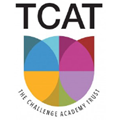Writing
Penketh South Primary School encourages all pupils to develop a love for the English language through the spoken and written word.
Intent
Mastery over language empowers pupils to communicate effectively, creatively and imaginatively, as well as allowing children engagement with the world at large. We aim to inspire a love of learning and promote high expectations, celebrating both success and effort so that pupils relish the challenge of learning and become determined, resilient learners. We want to fire their enthusiasm by using quality texts which inspire them. We believe that all pupils should be able to confidently communicate their knowledge, ideas and emotions through their speaking and writing and discover that through their reading, others can communicate with them. Our aim at Penketh South is for children to write clearly, accurately and coherently, adapting their language and style in and for a range of contexts, purposes and audiences. We want pupils to acquire a wide vocabulary, a solid understanding of grammar and be able to spell new words by effectively applying the spelling patterns and rules they learn throughout their time in primary school. We believe that all pupils should be encouraged to take pride in the presentation of their writing, in part by developing a good, joined, handwriting style by the time they move to secondary school. All good writers refine and edit their writing over time, so we want children to develop independence in being able to identify their own areas for improvement in all pieces of writing, editing their work effectively during and after the writing process. We do not put ceilings on what pupils can achieve in writing and we do not hold pre-conceptions about any pupils’ ability to make progress.
Implementation
We use and adapt the Pathways to Write scheme of work to support the teaching of writing from Year 1 through to Year 6. Through this, children engage with a wide range of quality model texts and therefore build a knowledge of different genres of writing that they can apply in a variety of circumstances. We want children to acquire an interest and excitement in words and their meanings, enriching their expressive language use and enhancing their vocabulary. Our goal is to inspire children’s imagination and ignite their curiosity, opening the door to a lifelong enjoyment of literature and language.
We teach English as whole class lessons, so that all children have access to the age-related skills and knowledge contained in the National Curriculum. Within lessons, teachers and teaching assistants target support for children who need it to enable them to achieve at an age-related level wherever possible. This may involve a greater level of scaffolding and access to additional support materials such as word banks or a greater level of modelling. High attaining children are given opportunities to extend their writing in a variety of ways, including through showing greater control in their writing, a deeper understanding of the impact that their writing has on the reader and by using a higher level of vocabulary and grammar features.
Grammar and punctuation knowledge and skills are taught through English lessons as much as possible. Teachers plan to teach the required skills through the genres of writing that they are teaching, linking it to the genre to make it more connected with the intended writing outcome. Teachers sometimes focus on particular grammar and punctuation skills as stand alone lessons if they feel that the class need additional lessons to embed and develop their understanding or to consolidate skills.
Each year group use the National Curriculum to ensure they have full coverage of each of the writing genres.
Children will be assessed using the National Curriculum objectives for their year group throughout the year, Teachers will use their professional judgement to determine whether a child is working within age-related expectations, above or below. They will base their judgements on the quality of writing that pupils produce at the end of each unit, and determine to what extent pupils have met the agreed success criteria for that genre of writing. Teacher’s will refer to the TAFS in Y2 and Y6.
Impact
- Pupils enjoy writing across a range of genres
- Pupils of all abilities will be able to succeed in all English lessons because work will be appropriately scaffolded
- Pupils will have a wide vocabulary that they use within their writing
- Pupils will have a good knowledge of how to adapt their writing based on the context and audience
- Pupils will leave primary school being able to effectively apply spelling rules and patterns they have been taught
- There will be no significant gaps in the progress of different groups of pupils (e.g. disadvantaged vs non disadvantaged)

